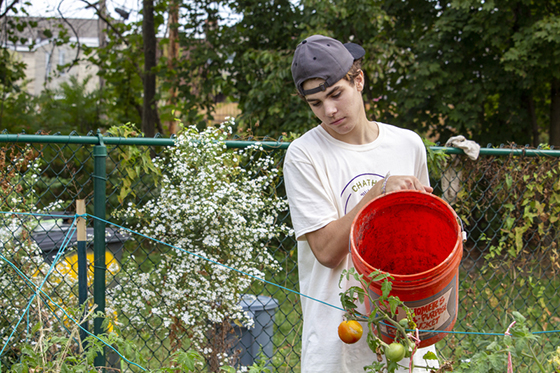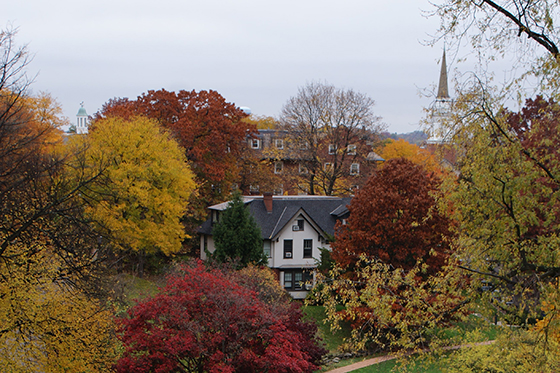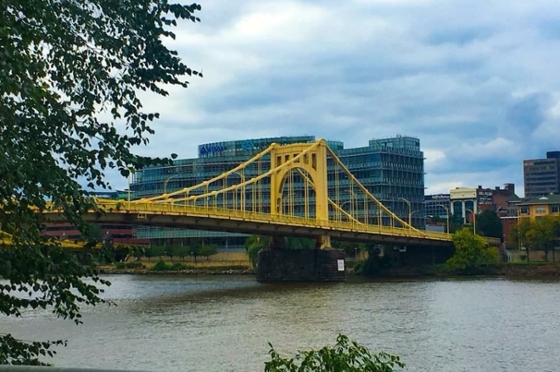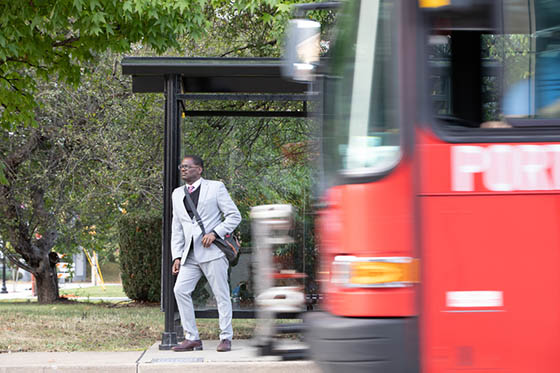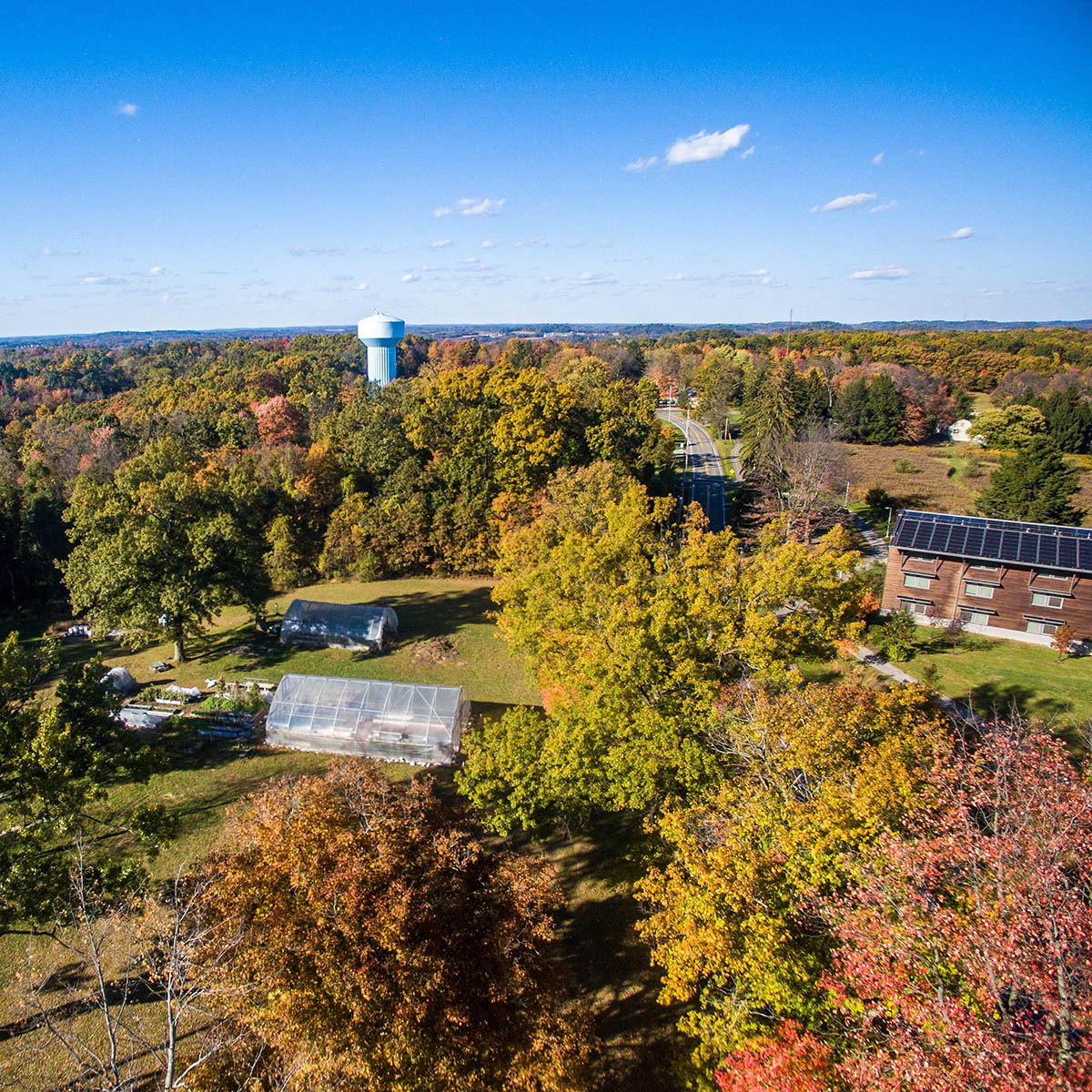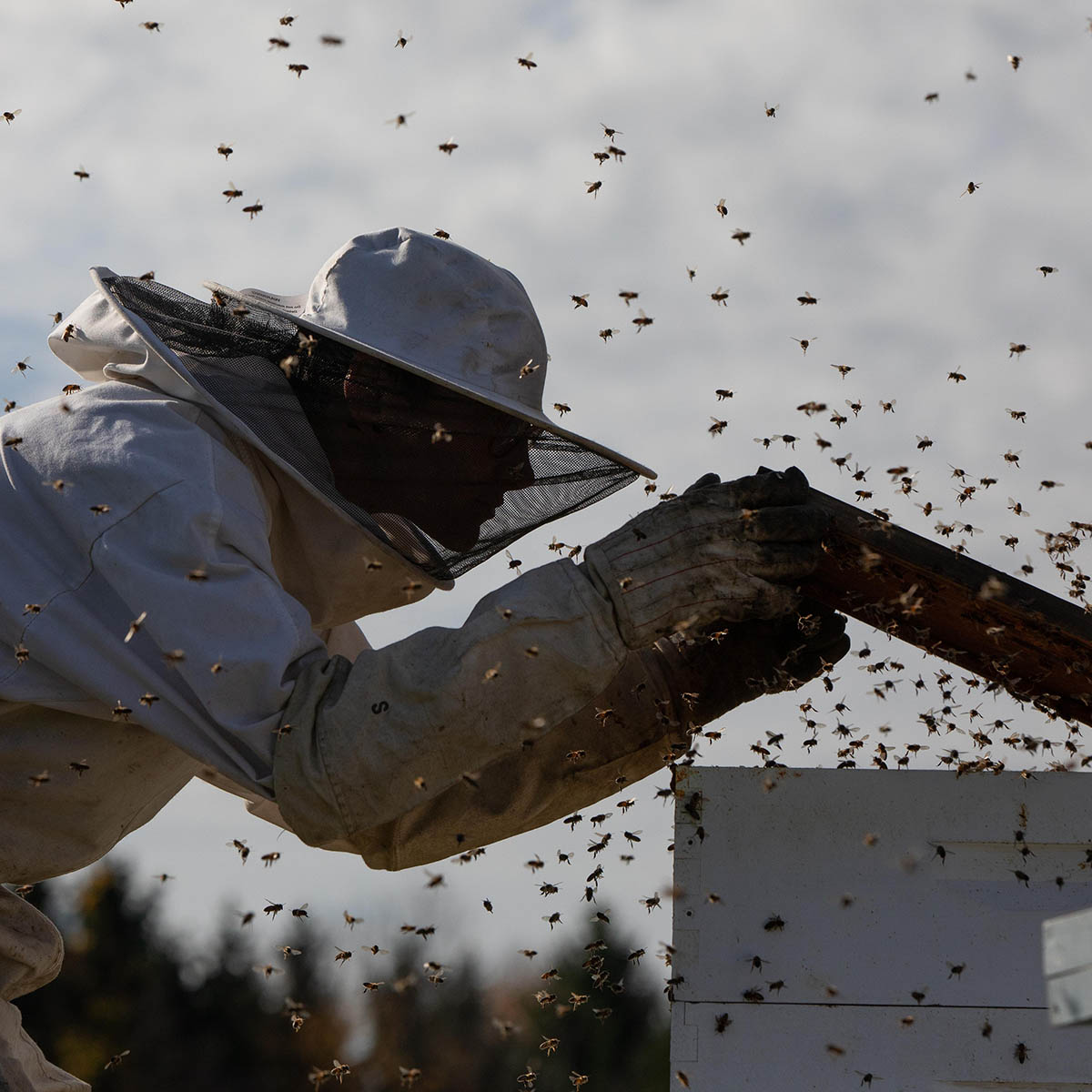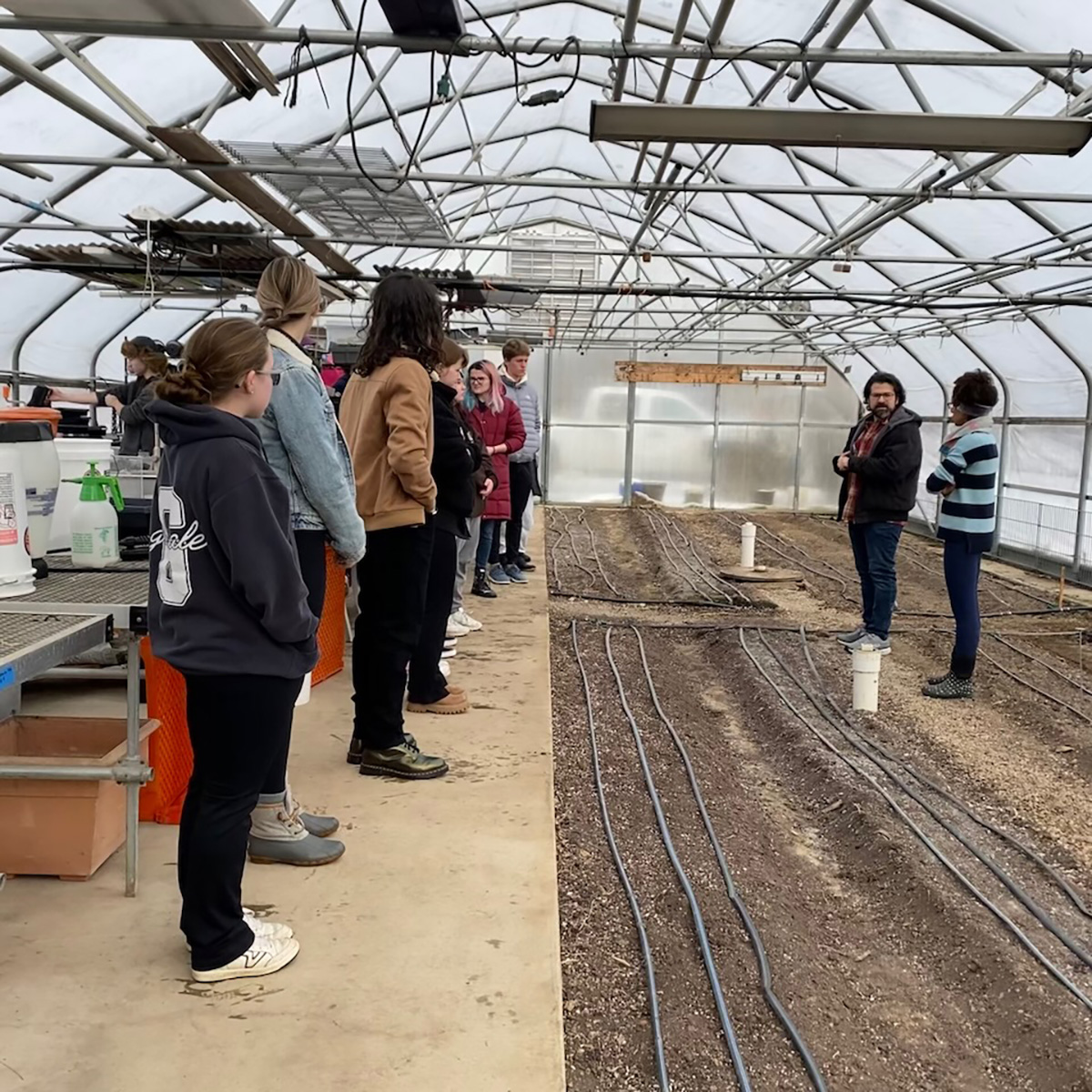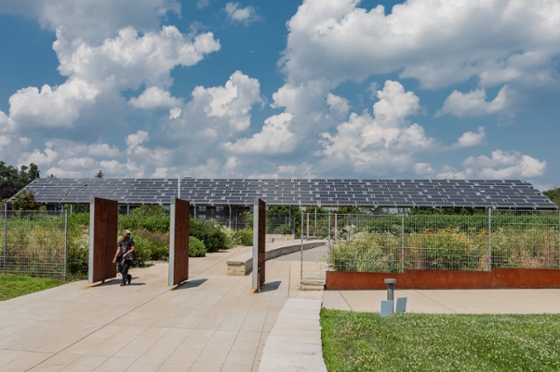
Energy & Operations
Chatham has made and purchased renewable power either directly or through RECS since 2002, and now purchases 90% of their total electricity usage from a Green-E Certified mix of renewable energy that is primarily wind power. At Eden Hall, we have photovoltaic panels on the entrance canopy, field lab, Dairy Barn Café, Barazzone Center, and Orchard Hall. In Shadyside, Chatham has installed solar thermal water heating for the University's Woodland and Fickes dormitories and completed the retrofitting of the lighting system at Chatham's Eastside building.

